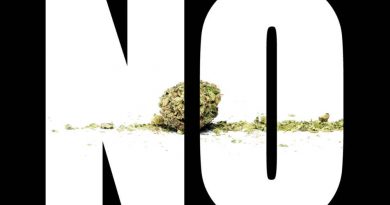World Anti-Doping Agency Expected to Retain Cannabis Ban
The World Anti-Doping Agency (WADA) appears prepared to keep its cannabis ban in place. The agency considered a rule change after cannabis use by U.S. sprinter Sha’Carri Richardson resulted in her not getting the chance to participate in the 2021 Summer Olympics in Tokyo.
Routine testing after Richardson’s Olympic trial in June 2021 tested positive for cannabis. A Dallas native who rose to fame on the Louisiana State University track team, Richardson said she used cannabis before the trial to relax and help her deal with the recent death of her mother.
Many called for removing cannabis from the list of illegal drugs after the incident. But recent reports from the Wall Street Journal and Washington Post quote insiders as saying the agency has decided to keep the ban in place. WADA is expected to announce the decision in late September.
What Happened to Richardson?
Richardson found out shortly before the Olympics that she was off the U.S. team. The U.S. Anti-Doping Agency (USADA) handed down a punishment that included a one month ban from the sport and keeping her off both the 4×100-meter relay and 100-meter race.
The USADA made these decisions because cannabis is on the WADA’s list of banned substances. Richardson voluntarily accepted her punishment, but other athletes came to her defense. NFL player Richard Sherman said he felt “ frustrated at the place we are as a society.” And in an ESPN interview, Kansas City Chiefs quarterback Patrick Mahomes said “to not let her be at the Olympics at all is pretty ridiculous to me.”
Many athletes and sports officials asked WADA to reconsider its cannabis rules, as in many countries attitudes about cannabis have changed. However, the Journal and Post reported that cannabis remains on the list of banned substances for 2023 that the WADA executive committee will approve.
Less Stringent Rules Around Cannabis Use By Athletes
There’s been a bit of back and forth on the issue in recent weeks. A WADA spokesperson told the Journal that the U.S. officials had not officially asked for removal of cannabis from the banned drug list. That lack of a formal request apparently helped lead to the decision to keep cannabis banned.
However, a spokesperson for the USADA told the Journal that U.S. officials have “advocated for WADA to change its approach to marijuana so a positive test is not a violation unless it was intentionally used to enhance performance or endangers the health or safety of competitors.”
For their part, WADA points to less stringent rules around cannabis in recent years. That includes raising the threshold for testing positive and imposing shorter suspensions for violations. Penalties can last just a month if an athlete can prove they used cannabis out of competition and did not intend to enhance their performance.




